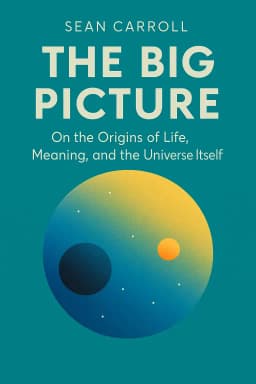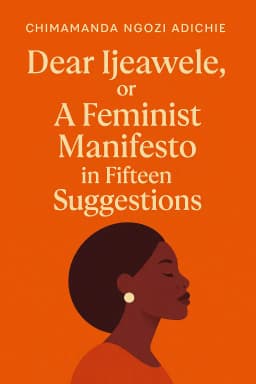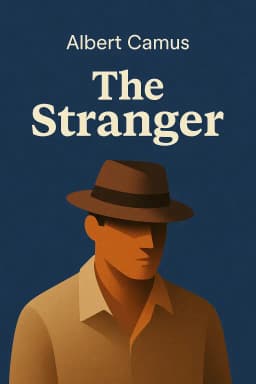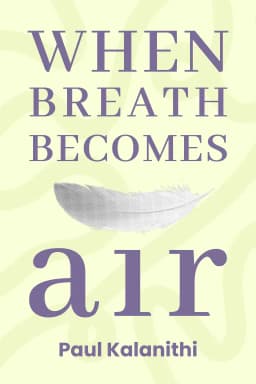
Physics vs. The Afterlife
Golden Hook & Introduction
SECTION
Michael: Here’s a bold claim for you: Everything you think of as 'supernatural'—ghosts, psychic powers, life after death—has already been disproven. Not by philosophy, but by an equation you can fit on a t-shirt. Today, we’re exploring why. Kevin: Whoa, okay. That's a heck of an opening. Disproven? Like, completely? That sounds like the kind of claim that gets you into a lot of trouble. Michael: It's a firestarter, for sure. But it's the bedrock of Sean Carroll's incredible book, The Big Picture: On the Origins of Life, Meaning, and the Universe Itself. Kevin: And Carroll is the perfect person to make a claim like that, right? He’s not just a physicist; he's a professor of natural philosophy at Johns Hopkins. He lives and breathes both the hard science and the big 'why' questions. Michael: Exactly. And that dual expertise is why the book was so widely acclaimed, even if it stirred up some controversy. It doesn't just give you the science; it grapples with what it all means. Which brings us to our first big idea, and it starts, believe it or not, with a cartoon. Kevin: A cartoon? Please tell me we're about to get a profound life lesson from Bugs Bunny. Michael: Close. Think Wile E. Coyote.
Poetic Naturalism and the Wile E. Coyote Problem
SECTION
Michael: You remember the classic Wile E. Coyote gag, right? He’s chasing the Road Runner, full speed, and runs straight off a massive cliff. Kevin: Of course. But he doesn't fall right away. He just hangs there in mid-air, legs still churning. Michael: Precisely. He keeps running on thin air until that one fateful moment... he looks down. He realizes there's no ground beneath him. And only then, poof, he plummets. Kevin: A classic. So what does this have to do with the meaning of life? Michael: Carroll argues that humanity, as a whole, is Wile E. Coyote. For centuries, we’ve been running on a certain kind of ground—the belief in a transcendent purpose, a divine plan, a God-given meaning to our existence. But over the last few hundred years, science—from Galileo to Darwin to modern cosmology—has been steadily chipping away at that ground. Kevin: Okay, I can see the metaphor. We've run off the cliff of old certainties. But it's a great image, is it really that dramatic? Most people I know aren't having an existential crisis every morning before their coffee. They just... get on with their lives. Michael: That's the key! Like the coyote, we haven't looked down yet. Many of us are still operating as if the old ground is there. We talk about purpose, morality, and meaning as if they are handed to us from on high. Carroll's point is that the scientific picture of the universe—a universe of particles, forces, and impersonal laws—is fundamentally at odds with that old story. Kevin: So we're all just hanging in mid-air, about to plummet into meaninglessness? That's... bleak. Michael: This is where Carroll offers a way out. He doesn't think we have to plummet. Instead, we need to build ourselves a conceptual jetpack. And that jetpack is his core philosophy: "Poetic Naturalism." Kevin: Hold on. "Poetic Naturalism." That sounds like something you'd name an indie band. In plain English, what does that actually mean? Michael: It’s simpler than it sounds. It has two parts. "Naturalism" means there's only one world—the physical, natural world. No supernatural realm, no immaterial souls, no divine forces intervening. Everything follows the laws of physics. Kevin: Okay, that's the atheist or materialist part. What about the "poetic" part? Michael: The "poetic" part is the acknowledgment that even if there's only one underlying reality, there are many different, valid ways of talking about it. Many different "stories." For example, I can describe this table as a collection of quarks and electrons governed by quantum field theory. That's one story. Or I can describe it as a solid, brown, wooden table. That's another story. Kevin: And both are true. Michael: Exactly. Both are true and useful in their own domains. You wouldn't use quantum physics to tell someone where to set their drink. Carroll's argument is that concepts like "consciousness," "purpose," and "morality" are like that. They are real, emergent properties that are part of a higher-level story we tell about ourselves. They aren't illusions just because you can't find them in the equations of physics. Kevin: So "poetic naturalism" is a way to be a naturalist without having to throw out all the things that make us human, like meaning and values? Michael: You've got it. It's saying the "story" of morality is just as real, in its own domain, as the "story" of atoms. The challenge, and the whole point of the book, is to make sure our different stories are consistent with each other. We can't have a story about an immaterial soul if our fundamental story of physics says there's no way for it to interact with our body. Kevin: And that’s where the Wile E. Coyote problem comes back. Our old stories about meaning are no longer consistent with our best scientific story. Michael: Precisely. We need new stories. We need to build that jetpack.
The Core Theory: Why Physics Says There's No Afterlife or Psychic Powers
SECTION
Michael: And making those stories consistent is where Carroll makes his most audacious claim. He argues that the fundamental story, the physics of our everyday lives, is done. Finished. Kevin: Okay, now you've lost me. That sounds incredibly arrogant. Science is always changing. I remember reading that the famous physicist Albert Michelson said physics was basically over in 1894, right before Einstein and quantum mechanics blew the whole thing up. Isn't Carroll just falling into the same trap? Michael: It's a fair challenge, and Carroll addresses it head-on. He’s not saying we know everything about the universe. Far from it. We have no idea what dark matter or dark energy are. But he argues that within the domain of our everyday lives—the world of atoms, chemicals, people, and chairs—the underlying laws are completely understood. Kevin: How can he possibly be that confident? Michael: The confidence comes from something he calls the "Core Theory." Think of it as the Standard Model of particle physics plus Einstein's theory of General Relativity. This theory describes all the particles and forces we've ever detected in any experiment here on Earth. It describes electrons, photons, quarks, gravity... everything that makes you, you. And it has been tested to an absurd degree of precision. Kevin: Like the Apollo 15 experiment, dropping the hammer and the feather on the moon? Michael: Exactly like that! That was a test of gravity, and it worked perfectly. The Core Theory has passed every single test we've thrown at it. But here's the crucial part. The theory isn't just a list of particles. It's a rigid framework—a quantum field theory—that tells you what can and cannot exist. Kevin: So it's not just about what we've found, but about what the theory says is even possible to find? Michael: You've nailed it. The theory is so restrictive that if there were some new particle or force relevant to our daily lives—a "life force," a "spirit particle," the stuff of ghosts—we would have already found it. It would have shown up in our particle accelerators. Kevin: Wait, how? If it's a totally new kind of energy, why would it appear in a place like the Large Hadron Collider? Michael: Because for it to affect us, it has to interact with us. For a soul to move your arm, or for a psychic to bend a spoon, that "soul-force" or "psychic-force" has to interact with the atoms in your arm or the spoon. And quantum field theory has a principle called "crossing symmetry." It basically says if a new particle can interact with our particles, we should be able to create that new particle by smashing our particles together with enough energy. We've been doing that for decades, and we've found nothing. Kevin: So the absence of evidence, in this case, really is evidence of absence. Because we should have seen it by now if it existed. Michael: Overwhelmingly so. This is why Carroll can say with such confidence that there is no life after death. When you die, the information that makes you "you"—the specific arrangement of atoms in your brain and body—dissipates. The laws of physics don't allow for some "soul" made of a different substance to float away, because that substance would have to interact with your body, and we've found no evidence for any such substance or interaction. Kevin: It's a powerful argument. It's not just philosophical; it's a claim grounded in experimental physics. It's like having a perfect map of your neighborhood. You know there aren't any hidden streets or secret parks because the map is complete for that area, even if you don't know what's happening on other continents. Michael: That's the perfect analogy. We don't have a map of the whole cosmos. But for the neighborhood of everyday life, the Core Theory is our map. And it's a very, very good one.
Constructing Goodness: How to Build Meaning on a Foundation of Nothing
SECTION
Kevin: Okay, let's say I buy it. The universe is just particles, no soul, no afterlife. That's... kind of a downer. It feels like it strips away all the magic and purpose. Where does that leave us? What's the point? Michael: That is the billion-dollar question, and it's where the book's "existential therapy" really kicks in. Carroll argues that once we accept this physical reality, we're faced with the ultimate challenge and the ultimate freedom: we have to construct meaning for ourselves. Kevin: Construct it? So it's not real? It's just something we make up to feel better? Michael: Not at all. Remember poetic naturalism? The story of meaning is a different kind of story from the story of physics, but it's no less real. The key is understanding that you can't derive "ought" from "is." Science can tell us what the universe is, but it can never tell us how we ought to live. That's a different kind of question. Kevin: The classic is-ought problem. You can't get a moral prescription from a factual description. Michael: Exactly. And this is where Carroll tells one of the most moving stories I've ever read, about Carl Sagan and his wife, Ann Druyan. When Sagan, a famous skeptic, was dying, people constantly asked Druyan if he had a last-minute conversion, if he'd found faith in an afterlife. Kevin: I can imagine. People want that comfort, that reassurance. Michael: But Druyan's response was profound. She said they never sought that illusion. Their time together, their love, was made more precious, more miraculous, precisely because they knew it was finite. They knew this was it. The fact that these two collections of atoms, in this vast, indifferent universe, found each other and created this beautiful life together—that was the miracle. They didn't need a transcendent promise to make it meaningful. Kevin: Wow. That's both heartbreaking and incredibly beautiful. It completely reframes the whole idea of what a meaningful connection is. It's not about forever; it's about the significance of now. Michael: That's the heart of it. And it's a beautiful, but also very demanding, way to live. It puts all the responsibility on us. Kevin: This is all great, but what does it actually look like to 'construct goodness'? If there's no divine rulebook, aren't we just making it all up? What stops it from being completely arbitrary? Michael: Carroll's answer is that we're not starting from scratch. We are born with cares and desires, products of our evolution and upbringing. We care about our own well-being, we care about others, we feel empathy, we have a sense of fairness. Morality isn't about discovering some external truth; it's about a process he calls "moral constructivism." Kevin: Another big term. Break it down for me. Michael: Think of it like inventing a game, like basketball. James Naismith didn't "discover" the objective rules of basketball floating in the cosmos. He invented them for a purpose: to create a fun, engaging indoor sport. The rules aren't arbitrary—you can't just start carrying the ball—because they serve that purpose. And over time, we've refined the rules to make the game better. Kevin: So morality is like that? We invent the rules based on our shared desires—like well-being, fairness, and cooperation—and we can argue and reason about how to make those rules better. Michael: Exactly. It’s a collaborative project. It’s not about one person finding the answer, but about all of us, with our different desires, sitting down and figuring out how to live together. It's messy, it's difficult, and there's no final answer. But the process itself is where the meaning is found.
Synthesis & Takeaways
SECTION
Michael: So, if we tie this all together, Carroll gives us this incredible arc. We start as Wile E. Coyote, realizing the ground of old certainties is gone. Then, physics, through the Core Theory, tells us there are no invisible safety nets—no soul, no afterlife, no psychic rescue on the way. Kevin: It sounds like we're set up for a tragic fall. Michael: But instead of plummeting, Carroll says we can build our own jetpack. That jetpack is meaning, constructed from the finite, precious reality we actually have. It’s built from our connections, our capacity to care, and our ability to reason together about how to be good to each other. Kevin: It’s a shift from looking for purpose out there in the cosmos to creating it in here, between us. The universe doesn't care about us, but the fact that we care is what makes everything matter. Michael: That's the poetic part of his naturalism. The universe provides the canvas and the paint—the particles and the laws—but we are the artists. We get to decide what to create. Kevin: So the big question Carroll leaves us with is: If you knew this was your only shot, your one and only 'three billion heartbeats' as he puts it, what kind of story would you want your life to tell? Michael: It’s a powerful question. And it’s not one that science can answer for you. It's one we each have to answer for ourselves. We’d love to hear what you all think. What does constructing meaning look like for you? Let us know your thoughts. Michael: This is Aibrary, signing off.









